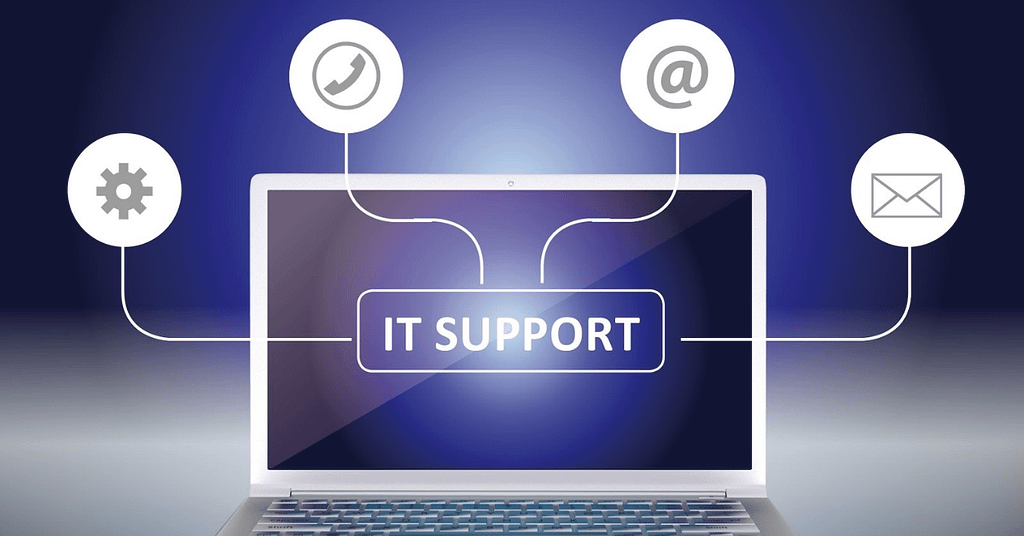In today’s technology-driven world, having reliable IT support is no longer a luxury—it’s a necessity. Whether you’re a small business or a large enterprise, the right IT support provider can ensure your systems run smoothly, minimize downtime, and protect your data from cyber threats. But with so many options available, how do you choose the best IT support provider for your business? In this guide, we’ll walk you through the key steps to selecting the right IT support provider and share actionable tips to help you make an informed decision.
Why Choosing the Right IT Support Provider Matters

Your IT infrastructure is the backbone of your business. From managing day-to-day operations to safeguarding sensitive data, your IT systems play a critical role in your success. However, without the right support, even minor technical issues can escalate into major problems, leading to:
- Downtime: Lost productivity and revenue.
- Security breaches: Exposure to cyberattacks and data loss.
- Inefficiency: Wasted time and resources on unresolved issues.
1. Assess Your Business Needs
Understanding Your IT Requirements
Before you start searching for an IT support provider, it’s essential to evaluate your business’s specific needs. Ask yourself:
- What are your current IT challenges?
- What level of support do you require (e.g., basic troubleshooting, 24/7 monitoring)?
- Do you need help with cybersecurity, cloud services, or software management?
Key Considerations
- Business size: Smaller businesses may need more hands-on support, while larger enterprises might require specialized services.
- Industry requirements: Certain industries, like healthcare or finance, have strict compliance and security standards.
- Growth plans: Choose a provider that can scale with your business.
By identifying your needs, you can narrow down your options and find a provider that aligns with your goals.
2. Look for Experience and Expertise

Why Experience Matters
IT support is a complex field, and experience matters. A provider with a proven track record is more likely to deliver reliable and effective solutions.
Questions to Ask
- How long have they been in business?
- Do they have experience working with businesses in your industry?
- What certifications and qualifications do their technicians hold?
Specializations to Consider
- Cybersecurity: Protecting your data from threats.
- Cloud services: Managing cloud infrastructure and migration.
- Network management: Ensuring seamless connectivity.
Choose a provider with the expertise to handle your specific IT needs.
3. Evaluate Their Service Offerings
Comprehensive vs. Limited Support
Not all IT support providers offer the same services. Some focus on basic troubleshooting, while others provide end-to-end solutions.
Key Services to Look For
- Help desk support: Remote or on-site assistance for technical issues.
- Proactive monitoring: Identifying and resolving problems before they escalate.
- Disaster recovery: Backup and recovery solutions for data protection.
- Strategic IT consulting: Guidance on technology investments and upgrades.
Ensure the provider’s offerings match your business requirements.
4. Check Their Response Time and Availability
The Importance of Quick Response Times
When an IT issue arises, every minute counts. Slow response times can lead to prolonged downtime and lost productivity.
Questions to Ask
- What is their average response time?
- Do they offer 24/7 support?
- How do they handle emergencies or after-hours issues?
Service Level Agreements (SLAs)
A reliable provider will offer a clear SLA outlining their response times, resolution times, and availability. Make sure these terms align with your business needs.
5. Review Their Security Measures
Cybersecurity is Non-Negotiable
With cyberattacks on the rise, your IT support provider must prioritize security.
Key Security Features to Look For
- Firewall and antivirus management: Protecting your systems from threats.
- Data encryption: Safeguarding sensitive information.
- Regular security audits: Identifying and addressing vulnerabilities.
- Employee training: Educating your team on cybersecurity best practices.
A provider with robust security measures can help you avoid costly breaches.
6. Consider Their Scalability
Planning for Growth
Your IT needs will evolve as your business grows. Choose a provider that can scale with you.
Signs of a Scalable Provider
- Flexible service plans that can be adjusted as needed.
- Experience supporting businesses of different sizes.
- Ability to integrate new technologies and solutions.
A scalable provider ensures you won’t outgrow their services.
7. Read Reviews and Ask for References
The Power of Customer Feedback
Reviews and testimonials provide valuable insights into a provider’s reliability and performance.
How to Evaluate Reviews
- Look for patterns in feedback (e.g., consistent praise or complaints).
- Check third-party review sites like Google, Clutch, or G2.
- Ask the provider for references from businesses similar to yours.
Speaking directly to past or current clients can give you a clearer picture of what to expect.
8. Compare Pricing and Value
Understanding Pricing Models
IT support providers may charge hourly rates, flat fees, or monthly retainers. Make sure you understand their pricing structure and what’s included.
Questions to Ask
- Are there any hidden fees?
- Do they offer customizable plans?
- What’s the total cost of ownership (TCO) over time?
Balancing Cost and Quality
While it’s tempting to choose the cheapest option, remember that quality matters. A slightly higher investment in a reliable provider can save you money in the long run.
9. Test Their Customer Service
The Importance of Great Customer Service
Your IT support provider should be easy to work with and responsive to your needs.
How to Gauge Their Service
- Reach out to their support team with questions.
- Observe how quickly and effectively they respond.
- Pay attention to their communication style and professionalism.
A provider with excellent customer service will make your life easier.
10. Trust Your Instincts
The Human Factor
Finally, trust your gut. If something feels off during your interactions with a provider, it’s worth exploring other options.
Signs of a Good Fit
- They listen to your concerns and offer tailored solutions.
- They communicate clearly and transparently.
- You feel confident in their ability to support your business.
Choosing the right IT support provider is a partnership, so make sure it’s one you’re comfortable with.
Conclusion: Make the Right Choice for Your Business
Selecting the right IT support provider is a critical decision that can impact your business’s efficiency, security, and growth. By following these steps—assessing your needs, evaluating experience, reviewing services, and checking references—you can find a provider that meets your requirements and delivers exceptional support.
Ready to take the next step? Start by creating a shortlist of potential providers and scheduling consultations. With the right partner by your side, you can focus on what you do best—running your business.

